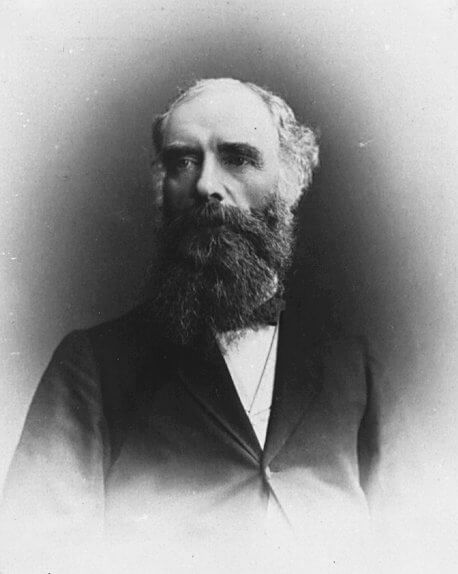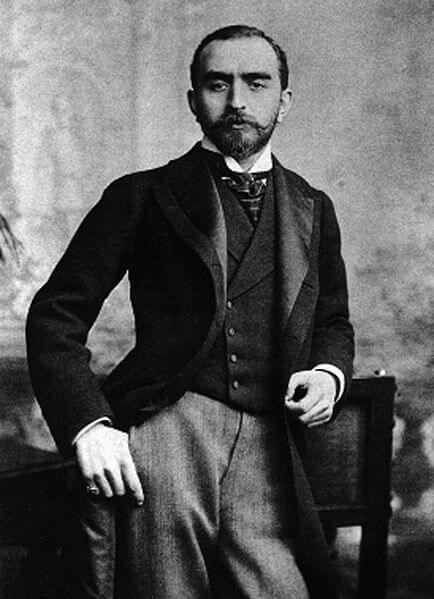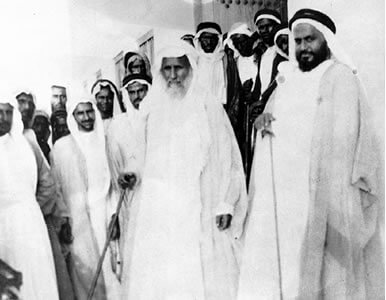Just before the Great World War, Britain began to show interest in the possibility of finding oil in Arabia. In 1913 the British Government signed an agreement with Kuwait for exclusive rights for oil exploration in Kuwaiti territory. A year later a similar treaty was signed with the Sheikh of Bahrain. These treaties covered agreement on ownership and production of oil if and when discovered.
In the autumn of 1916 the British Government, sensing oil in the area of Qatar, drew up a Treaty of Protection in which Sheikh Abdullah bin Jassem al Thani, the then ruling Sheikh of Qatar, agreed to obtain the consent of the British Government before granting pearl fishing concessions, cable landing rights or other monopolies to any one whomsoever…. One will note that no mention of oil was made; it was covered by “other monopolies”.
France was most upset about this agreement between Britain and Qatar. Diplomatic waves were made, the outcome being the famous Sykes-Picot agreement that gave France a share in the colonial mandates in the Middle East. France obtained control over the Mosul region of Iraq.
Britain had no intention of allowing matters to rest there. In 1919 the Long Berenger Agreement caused the reversion of control over Mosul to Britain whilst guaranteeing 25 per cent of any oil revenues to France.
Turkey’s claim to sovereignty over Mosul was finally taken to the League of Nations, which was resolved by the declaration in 1925 that Mosul was part of Iraq, providing that Iraq remained under British mandate and that ten per cent of the oil production in the Mosul area be allocated to Turkey.
The battle for oil in the Gulf began to hot up. The United States of America became increasingly annoyed at the British and French seeking to monopolise the potential oil wealth of the Gulf. The U. S. A. used strong arm diplomacy on the British and French governments to include the U. S. A. in any further agreements being made in the region. One result of this pressure was the dissolution the Turkish Petroleum Company that had handled oil operations in Iraq, and the creation of a new company – the Iraq Petroleum Company (I. P. C.). This took place in 1928.
The Iraq Petroleum Company had five shareholders:
The Anglo-Persian Oil Company started in 1909 by a group of Scottish investors headed by Lord Strathcona of Burmah Oil Ltd held 23.75 per cent.
The Anglo-Saxon Oil Company, a subsidiary or Royal Dutch Shell held 23.75 percent.
Compagnie Francaise des Petroles – the French company held 23.75 per cent.
Near East Development Corporation (U. S. A.) also held 23.75 percent.
This left five per cent for Calouste Sarkis Gulbenkian (Mr. Five Per Cent) who had held a similar share in the now defunct Turkish Petroleum Company in recognition of his role in negotiations with the Turkish Government.
The Americans gained access to Gulf oil if only as partners in I. P. C. but they continued to seek independent agreements in the oil fields in Saudi Arabia.
In 1923 a British Registered company, Eastern and General Syndicate Ltd. fronted by a Major Frank Holmes acquired a concession for oil exploration in the Al Hasa region of Saudi Arabia in spite of strenuous efforts by the British Political Resident in the Gulf, Sir Percy Cox, to dissuade the Saudi Ruler, Abdul Aziz Ibn Saud from entering into any agreements with the Syndicate.
In 1925 Eastern and General Syndicate Ltd. obtained a similar concession from the Ruler of Bahrain. Both concessions were obtained for the sole purpose of selling them off to oil companies who were in competition with the Anglo Persian Oil Company. In 1928 Eastern and General was forced to give up its Saudi concession having failed to find a buyer. American Companies had shown interest but found they could not proceed due to the famous Red Line Agreement.
The Red Line Agreement was a vital factor agreed and signed by all participants at the time of the establishment of the Iraq Petroleum Company. A red line was drawn on a map of the region defining the agreed areas of operation of each of the shareholders. Under the terms of this accord shareholders in I. P. C. were proscribed from entering unilaterally into any agreement, directly or indirectly within the region defined by the Red Line.
Exceptions were made for Egypt and Kuwait. Anglo-Persian had a monopoly agreement with Kuwait predating the establishment of I. P. C. and a British company had acquired the Egyptian concession before the Red Line agreement came into force. This did not deter American Companies. In December of 1928 Standard Oil of California by a complex and tortuous series of manoeuvres, purchased the Eastern and General Syndicate’s concession in Bahrain even though that company was not a shareholder in I. P. C. which, remember, had the monopoly rights to Bahrain under the Red Line Agreement. The Americans just ignored a red line drawn on a map.
American oil companies thus obtained independent foothold in the Gulf and particularly in Saudi Arabia. In 1933 Standard Oil of California acquired the major concession for the eastern region of Saudi Arabia that had been forfeited earlier by Eastern and General Syndicate Ltd. The American Company offered attractive terms whilst Holmes of Eastern and General could only make a miserable offer of which the British Government was aware and even though Britain expected later to profit from a deal they were too dilatory in taking action to boost the offer.
To protect Qatar oil deposits from being exploited by American interests through American Companies agent, St. John Philby and his close connection with the Saudi Ruler, Abdul Aziz Ibn Saud, the British Political Resident in the Gulf, Sir Percy Cox was able to affect an agreement with the Saudi Ruler that any exploration for oil in Qatar from Dukhan to Salwa where the border of Qatar and Saudi Arabia meet should have British approval.
This agreement did not affect the Eastern and General Syndicate Ltd., who continued to be a threat to the British Government for overall control in Qatar.
In 1923 Sir Percy Cox turned down a request from Eastern Syndicate Ltd. for their representative to visit Qatar to test the possibility of obtaining a concession. The Anglo-Persian Oil Company made a similar request and was refused.
Two years later Anglo-Persian obtained permission from the Political Agent in Bushahr to conduct a preliminary geological survey in Qatar. This effectively blocked the Eastern and General Syndicate.
The British Government conscious of dealings and manoeuvres between the Syndicate and the American companies and realised they really ought to do something and urgently. Anglo-Persian was strongly advised to carry out oil exploration in Qatar. In August 1932 they sent their Mr. Mylles, and Haji Abdullah Williamson, an Arabic speaking European converted to Islam, to negotiate an exclusive agreement.In 1926 Anglo-Persian sent a geological team to Qatar and obtained from the Ruler, Sheikh Abdullah Bin Qassim Al-Thani a promise that no other concession for oil exploration be granted to any other company or group for a period of eighteen months. Having made an initial survey Anglo- Persian took very little interest in Qatar. Eastern and General were busy in Bahrain a Saudi Arabia and appeared to lose interest in Qatar until 1932. In that year they engaged a Bahraini a Sayed Hussein Yateem to proceed to Qatar to negotiate with Sheikh Abdullah. The Ruler, in accordance with the terms of the Treaty of Protection informed the British Government of the visit.
The terms of the 1926 agreement were renewed for two years and Anglo-Persian (or companies nominated by them) were given exclusive rights on first option for all concessions, and specifically prohibiting the Ruler of Qatar to offer any concession to any company already participating in oil operations in the region. In return the Sheikh was to be paid one thousand Indian rupees each month by Anglo-Persian Oil Company. This action upset the American interest. The U. S. Government enquired why the British Government had monopolised Qatar. The bland reply given was that it had been decided to concentrate all Qatar oil concessions in the hands of British companies to save Britain the trouble of reviewing the organisation of postal services, as well as British supervision and protection of foreign subjects.
The Iraq Petroleum Company started to show interest in Qatar. In the summer of 1933 they applied to the Political Resident to visit Qatar to review survey operations. This was refused and caused a strong reaction in London. The entire strategy of oil policy in Qatar was reviewed at the Colonial Office with the Foreign Office, the Department of Petroleum Affairs and the India Office in attendance. The outcome being that the I. P. C. representative could visit Qatar. Under the terms of the Red Line Agreement I. P. C. would technically hold the licence for any concessions awarded to Britain once oil was found.
Anglo-Persian and I. P. C. were now jockeying for the oil concession from Sheikh Abdullah. The British Government had reason to believe the U.S.A. was making inroads into Qatar and urged the Sheikh to grant Anglo -Persian full exploration rights throughout Qatar within an area of 3,000 square miles for a period of 75 years. Much haggling took place.
The Ruler was demanding an annual payment of Rupees 500,000 in addition to sums already agreed. This caused the British officials to suspect the Sheikh intended to enter into negotiations with Standard Oil of California. The negotiations rambled on until June 1934 when Yussef Kanoo on behalf of Anglo- Persian visited Sheikh Abdullah in Doha. He reported back that the Ruler was dismayed by lack of progress and although he was prepared to extend the exploration concession due to expire in August he would look elsewhere if the monthly allowance of Rupees 1,500 as not forthcoming.
Sheikh Abdullah reluctantly agreed to an extension of eight months in return for a monthly payment of Rupees 2,500.
The first oil concession was signed in Doha on 17th May 1935. Signed by Sheikh Abdullah Bin Qassim Al-Thani, Ruler of Qatar witnessed by Saleh bin Suleiman al Mana, and Charles Clark Mylles signed for Anglo-Iranian (now renamed) and witnessed by A. A. Hilmi. Under the new terms Qatar was guaranteed British protection. But the protection covered only cases of external aggression. Tribal raids and domestic squabbles were excluded. Protection would be provided by the British Air Force for whom the Sheikh was to provide facilities necessary for the R. A. F. to maintain its presence in Qatar, e.g. free use of wireless and telegraph, fuel stores warehouses and hangars.
By 1937 exploration began in earnest.
A new company was formed by Anglo-Iranian to operate the concession Petroleum Development (Qatar) Ltd, later to be re-named in 1950 Qatar Petroleum Company Ltd.
The survey(s) had confirmed the existence of oil deposits in the south west coastal region around Dukhan in a lozenge shaped field following the coast line, about 35 miles long and varying between 4 and 7 miles wide.
Drilling began in October 1938 just north of Dukhan. It was not until January 1940 that oil was reached at a depth of 5,685 feet with a potential of 5,000 barrels a day. Two more appraisal wells were drilled in adjacent areas to assess the extent of the oil pockets and the quality of any oil found.
Although war had broken out in 1939 work continued but it became increasingly difficult for the Company to obtain supplies and continue drilling. By June 1942 the Middle East had become a hazardous war zone and as the situation worsened, it was decided the Company could no longer carry on and had to pull out leaving behind four plugged wells and the buildings and facilities used by the staff and technicians. These were placed under the care of an old company employee Sheikh (a courtesy title) Mansour Khalil.
Drilling for oil would continue when the Company returned in 1946.
As soon as the hostilities in Europe wound down and materials and shipping facilities were available to make it possible for work to continue drilling for oil, the Dukhan Field was opened up once more.
Drillers, engineers, and an accountant were despatched from Haifa (in then what was Palestine) and Kirkuk in Iraq to start up operations. The old accommodation buildings and store, powerhouse and medical block were cleaned out and set to rights. Mansour bin Khalil al Hajiri the original company employee and guide had been left in charge of Dukhan camp and had faithfully carried out his responsibility.
What little transport and trucks that could be spared were sent from Iraq. Ex War Department machines, tractors, Jeeps and even tracked troop carriers were purchased and shipped down from Shaibah, near Basra. Petroleum Concessions Ltd., the I. P. C. subsidiary in Bahrain started to recruit clerks and artisans from Bombay India and Qataris were recruited through Saleh bin Suleiman al-Mana office in Doha. ‘ Qatari’ was then an all-embracing term. If a man knew the right formula he could be taken on the payroll even though he had been born in Bahrain, Sharjah, Saudi, the Trucial Coast or as far afield as Oman. If he had a friend or relative to speak for him he became an ‘honorary’ Qatari.
The years 1946 and 1947 were a hive of activity. Firstly the few old company employees returned to their jobs as drivers, rigmen and labourers and attendants etc. Supplemented by recruits from India and what is now Pakistan who worked as mechanics, carpenters, clerks, cooks and mess servants and the like. The drillers had been busy finding oil in Rig No. 5 – the first producing well No 1. A small holding tank with a standpipe allowed road tankers to fill up with viscous black liquid and thus when a blade grader had been brought to the scene the dusty tracks could be levelled and oiled over and made into some sort of road.
The original buildings in Dukhan had been put up by Qassem and Abdullah Darwish thus they continued to carry out all new construction to meet the needs of a rapidly expanding company structure and work force.
By the end of 1947 the Chief Accountant, Harold Jolly an old company hand who had been with I. P. C. since it’s inception in 1927 having brought Tussler from P. C. L. Bahrain as his assistant decided he needed another accountant to look after the payroll that had swollen to almost three thousand. It was not out of control but the situation required drastic overseeing and controlling.
This where I came on to the scene.
Around this time London Office had been recruiting a wide range of personnel to fill all manner of jobs, engineers of most disciplines, civil, mechanical, electrical, communications, and transport mechanics and even drivers of heavy equipment. Of course each departmental head required help and assistants. The numbers swelled to over one hundred expatriate staff – they were given the name – Covenanted Staff.
The clerks, timekeepers, senior artisans, medics in the small hospital, foremen, technicians and employees in charge of others where categorised as Non-Covenanted – Monthly Paid staff – the nuts and bolts of the organisation, the N.C.O. in fact.
The balance of the payroll, the larger part, being made up of “erks” this form of slang being quite in order for we should remember other than of the older I. P. C. departmental heads almost all other members of staff had served in the Services. Thus we thought and spoke in service language and the drivers, artisans, fitters, labourers and “coolies” (a term later to be frowned on and one I discouraged) the mess waiters and room boys (bearers) and all others where given the title of “Daily Rate Employees”.
Thus there were anomalies; the company had recruited heavy lorry and equipment drivers from the U.K. with no experience of driving in desert conditions working alongside daily rate Qatari ‘old hands’. One slept and ate in style and comfort, with a club and bar to go to after work whilst the other slept in a reed hut and ate good food but less costly. Needless to say the U.K. drivers did not last long, either the job beat them or the booze sent them on their way.
Liquor, spirits and beer in tins, was available at the bar and each expatriate had a monthly allowance which in those days was a bottle of whisky, one gin, a case of beer, and, when available, a case of wine.
The terms of service were two long years for bachelors and unaccompanied married men. At the end of 1947 there were only four ladies on the camp. The American Fields Manager’s wife, the doctor’s wife, the wife of the mechanical engineer and the chief geologist’s wife. There was very little for the staff to do after work. There was a small tennis court used by the departmental heads and a few of the privileged bachelors. Generally the men in the E. P. I. P. tents who were later, early in 1948, housed in the ‘hundred men’ mess had nothing to do in their spare time except drink and play snooker. A few drank to excess and when they had gone too far too often they were given a ‘plane ride’ to Blackbushe Airport London. The rate of turnover until the expatriate workforce settled down around 1949 was quite high.
This was the situation that existed and which I had to discover when I came ashore on the tiny jetty at Zekrit a few miles south of Dukhan.



